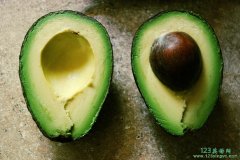高考英语阅读理解100篇 20-50篇(2)
编辑:高中作文网 阅读 次
A. There would be serious problems . B. There wouldn’t be any danger .
C. It would be long and tiring. D. It would be exciting .
4. Joe didn’t want to work with Sam again probably because he thought Sam .
A. was very slow and possibly deaf B. didn’t know how to operate the door
C. was less experienced than he was D. didn’t know how to do repairs
5. The writer tells this story to .
A. show the dangerous side of the astronauts’ life
B. show the funny side of the astronauts’ life
C. make people laugh
D. make people think
28、(1分)
Moscow, Russia (Space news)—“The computer is a better chess player,” insisted Viktor Prozorov, the loser. “It seemed as if it were laughing after every good move. I know I should have beaten it for the sake of mankind (为人类着想), but I just couldn’t win,” he announced and shook his head sadly.
Prozorov’s disappointment was shared by several grand masters who were present, some of whom were so upset that they shouted at the machine. Many chess players said that this meant the end of chess championships (锦标赛) around the world, since the fun had been taken out of the game.
The computer walked—or rather, rolled—away with 5,000 dollars in prize money and limited its remarks to a set of noises and lights.
1. Which of the following best gives the main idea of this newspaper article?
A. 5,000 dollars goes to a computer ! B. New invention, a laughing computer !
C. World’s best chess player beaten! D. Computer defeats man in chess !
2. How did some of the grand masters feel about the chess game between Prozorov and the computer?
A. They thought that the game was no fun.
B. They thought that the game wasn’t fair.
C. They agreed that Prozorov didn’t play well.
D. They were unhappy that the computer had won.
3. What was it that Prozorov felt most bitter (懊恼) about?
A. That he didn’t win the $ 5,000. B. That he hadn’t tried his best.
C. That he had lost to a machine. D. That this was the end of the chess game.
4. After winning the game, the computer .
A. laughed B. walked away
C. made some remarks D. gave out some lights and sounds
5. Many chess players felt that playing with a computer would .
A. make the game tougher B. make the game less interesting
C. make man appear foolish D. make man lose lots of money
29、(1分)
“I would almost rather see you dead,” Robert S. Cassatt, a leading banker (银行家) of Philadelphia, shouted when his twenty-year-old eldest daughter announced that she wanted to become an artist. In the 19th century, playing at drawing or painting on dishes was all right for a young lady, but serious work in art was not. And when the young lady’s family ranked among (跻身于) the best of Philadelphia’s social (社交界的) families, such an idea could not even be considered.
That was how Mary Cassatt, born 1844, began her struggle as an artist. She did not tremble before her father’s anger. Instead, she opposed (抗拒) him with courage and at last made him change his mind. Mary Cassatt gave up her social position (社会地位) and all thought of a husband and a family, which in those times was unthinkable for a young lady. In the end, after long years of hard work and perseverance (坚持), she became America’s most important woman artist and the internationally recognized leading woman painter of the time.
1. How did Mr. Cassatt react (反应) when his daughter made her announcement?
A. He feared for her life. B. He was very angry.
C. He nearly killed her. D. He warned her.
2. What in fact was Mr. Cassatt’s main reason in opposing his daughter’s wish?
A. Drawing and painting was simply unthinkable among ladies in those days.
B. He did not believe his daughter wanted to work seriously in art.
C. He believed an artist’s life would be too hard for his daughter.
D. Ladies of good families simply did not become artists in those times.
3. What made Mary Cassatt’s “struggle” to become a recognized artist especially hard?
A. She was a woman. B. Her father opposed her.
C. She had no social position. D. She did not come from an artist’s family.
4. What do we know about Mary Cassatt’s marriage (婚姻)?
A. Her marriage failed because she never gave a thought to her husband and family.
B. She never married because she did not want to be just a wife and mother.
C. After marriage she decide to give up her husband rather than her career(事业).
D. She did not marry because for a lady of her social position to marry below her was unthinkable.
5. What do we know about Robert Cassatt’s character from the text?
A. He was a cruel man B. He was a stubborn(固执的) man
C. He knew nothing about art D. He knew little about his daughter
6. What do we know about Mary Cassatt’s character?
A. She was brave in going against old ideas
B. She got tired of always obeying her father
C. She hated playing at drawing and painting
D. She did not mind being poor at all
7. As we learn from the text, which of the following was generally considered the most important in the life of a woman in the U.S. in Mary Cassatt’s times?
A. Money B. Career C. Marriage D. Courage
30、(1分)
Annealing is a way of making metal softer by heating it and then letting it cool very slowly. If metal is heated and then cooled very quickly, for example by dipping (浸) it in water, it will be very hard but also very brittle (脆) that is, it will break easily. Metal that has been annealed is soft but does not break as easily. It is possible to make metal as hard or as soft as is wished, by annealing it. The metal is heated, and allowed to cool slowly for a certain length of time. The longer the heated metal takes to cool slowly, the softer it becomes. Annealing can also be used on other material, such as glass.
1. Annealing can make metal .
A.hardand tough(韧) B. hard but brittle C. soft but tough D. soft and brittle
2. Why do people put hot metal in water?
A.Tomake it hard B. To make it soft. C. To make it cool. D. To make it brittle.
3. In annealing, the required hardness of a metal depend on .
A. the quantity of water used B. the temperature of the metal
C. the softness of the metal D. the timing of the operation
4. As suggested by the text, how can glass be made less brittle?
A. It can be heated an then cooled quickly. B. It can be cooled and then heated slowly.
C. It can be heated and then cooled slowly. D. It can be cooled and then heated quickly.
31、(1分)
A well-known old man was being interviewed (采访) and was asked if it was correct that he had just celebrated his ninety—ninth birthday.
“That’s right.”said the old man. “Ninety—nine years old, and I haven’t an enemy in the world. They’re all dead.”
“Well, sir,”said the interviewer, “I hope very much to have the honour of interviewing you on your hundredth birthday.”
The old man looked at the young man closely, and said, “I can’t see why you shouldn’t. You look fit and healthy to me!”
1. The old man said he had not an enemy in the world, which shows that he was a very .
A. friendly man he never made any enemies
B. healthy man he lived longer than all his enemies
C. lucky man his enemies had all died
D. terrible man he had got rid of all his enemies
2. When the interviewer said that he hoped very much to have the honour of interviewing the old man again the following year, .
A. he was trying to make the old man happy
B. he wished he himself would live another year
C. he did not believe the old man would live to be one hundred
D. he did not believe he would interview the old man again
3. When the old man said “I can’t see why you shouldn’t”, what he meant was:
A. “You must try to live another year to interview me again next year.”
B. “Of course, you can see me again since you’re so fit and healthy.”
C. “If I live to a hundred years, you should interview me again.”
D. “Unless you live another year, you wouldn’t be able to interview me again.”
4. What kind of man would you say the old man was?
A. He was silly. B. He was unpleasant.
C. He was very proud and sure of his health. D. He was very impolite to young people.
32、(1分)
Joe and Helen Mills had two small children. One was six and the other four. They always resisted going to bed, and Helen was always complaining (抱怨) about this and asking Joe for help. But as he did not come home until after they had gone, to bed during the week, he was unable to help except at weekends.
Joe considered himself a good singer, but really his voice was not at all musical. However, he decided that, if he sang to the children when they went to bed, it would help them to relax, and they would soon go to sleep.
He did this every Saturday and Sunday night until he heard his small son whispered to his younger sister, “If you pretend that you’re asleep, he stops.”
1. The children always resisted going to bed, which .
A. made Helen suffer a lot B. satisfied their mother
C. Helen was not satisfied with D. gave Helen much trouble
2. The husband couldn’t help the wife to look after the children .
A. because he returned from work too late B. since his voice sounded like a singer’s
C. except on Saturday and Sunday
D. for he did not come home until after the children had gone to bed weekends
3. Joe worked .
A. all the week including Saturday and Sunday
B. during the week including the weekends
C. every day but Saturday and Sunday
D. every week except on Sunday
4. Which of the following conclusions can we draw from the above story?
A. Joe’s song did help the children to relax.
B. With Joe’s help, the children went to sleep.
C. The wife must be thankful to her husband for the great help.
D. The children were so tired of their father’s voice that they pretended to be asleep.
5. This joke tells about .
A. Joe and Helen B. Helen’s trouble
C. Joe’s foolery D. the bright idea of the two small children
33、(1分)
Arli has learnt how to type for several years. Still, he types rather slowly, and he can only spell out words of four letters or less. But Arli is doing quite well for a dog.
He is black, white, and brown. He uses a special typewriter it has shallow bowl—like keys that are about two inches wide. His owner calls out the letter, the dog hits the keys with this nose.
Arli does very well at typing “good dog”. But he seems to have a bit of trouble when he is asked to spell out “bad dog”.
1. Arli is the name of .
A. a typist(打字员) B. a child C. a dog D. a man
2. The main purpose of the story is to tell us that Arli is .
A. a very bad typist B. unusually clever
C. a very good typist D. slow and not clever
3. How do you think Arli learned to type?
A. He was helped to do it by a dog . B. He did it with the help of his master .
C. He started doing it naturally several years ago. D. He did it for a living .
4. The writer tells us that Arli’s typewriter .
A. has only a small number of keys B. is smaller than an ordinary typewriter
C. is larger than an ordinary typewriter D. sometimes gives you a bit of trouble
34、(1分)
Schools and parents in Shenzhen City have been asked to take better care of children’s eyesight as 45 percent of them, were found to be shortsighted. Too much reading, poor lighting and too much TV are blamed. Of the city’s high school graduates. who applied to attend college this summer, two—thirds had to have their choices limited because of poor eyesight, Shenzhen Special Zone (特区) Daily said.
1. This piece of news was reported by .
A. People’s Daily B. Shenzhen Special Zone Daily
C. school in Shenzhen City D. parents in Shenzhen City
2. The purpose of this passage is to .
A. criticize children who are shortsighted
B. blame parents and schools for children’s being shortsighted
C. ask the high school graduates to pay attention to their eyesight
D. draw people’s special attention to eye hygiene(卫生)
3. Only of the children in Shenzhen City have good eyesight.
A. 45 percent B. less than half C. 55 percent D. two—thirds
4. Generally speaking, high school students have eyesight than primary school students.
A. poorer B. still better C. poor D. brighter
5. Because of being shortsighted many school graduates .
A. weren’t allowed to enter college B. couldn’t graduate from high school
C. couldn’t choose to study what they liked best D. lost their limited time
6. In order to protect their eyes, children shouldn’t .
A. read books B.wear glasses C. make their eyes too tired D. see things far away
35、(1分)
SINGAPORE-Another Thai worker died in his sleep last Friday, the second such death in the past three days and the 10th since the beginning of the year. Thongehai Sombattra, 22, is said to be the youngest to have died mysteriously this year. A total of 10 young Thai construction workers in their late 20s and 30s who appeared well and healthy when they went to bed have died since the beginning of this year. They were either found dead in the morning or had died suddenly in the middle on the night after some difficulty in breathing.
From China Daily, March 19,1990
1. According to the passage ______.
A. Ten people died mysteriously during the last three days
B. Two people died mysteriously during the last three days
C. Two people have died mysteriously since the beginning of the year
D. Ten people died mysteriously before last Friday
2. During the past three days, Thongchai Sombattra died last Friday, the other passed away ______.
A. last Monday B. last Thursday C. last Thursday D. last Sunday
3. Thongchai Sombattra, who died mysteriously, _______.
A. was aged 22 B. was in his mid twenties
C. was not more than 20 years old D. was nearly 30 years old
4. Besides Thongchai Sombattra, the others could be _______.
A. from 25 years old to 38 years old B. from 20 years old to 39 years old



